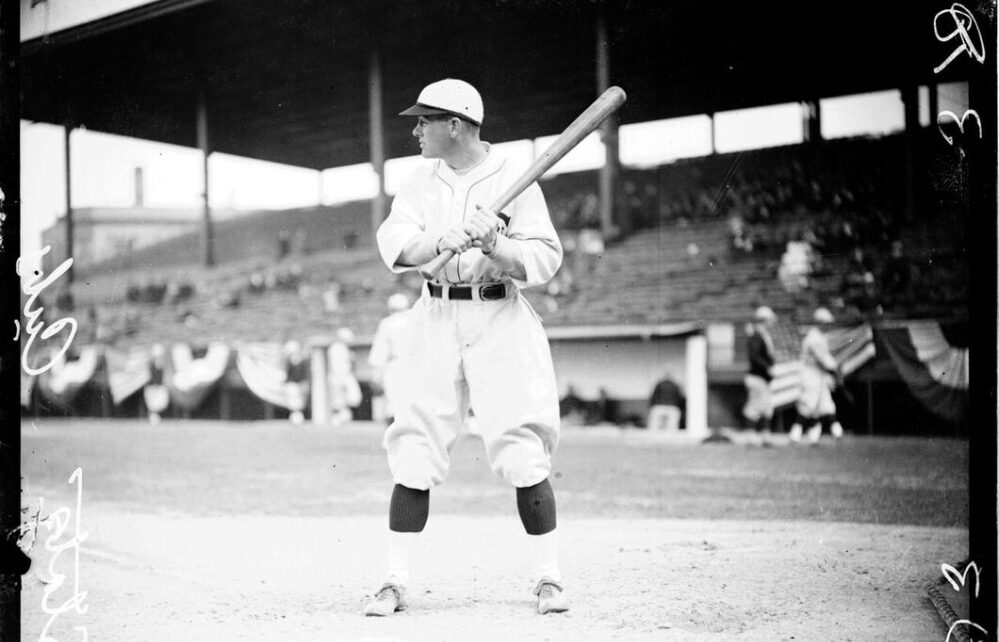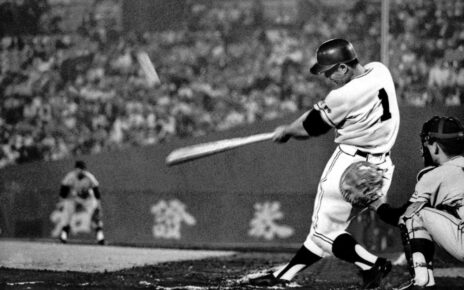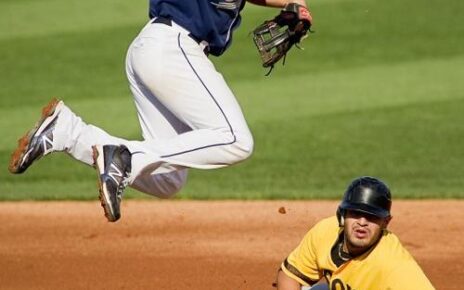If someone approached you with a stat line that read, “.285/.337/.373 with 737 hits, a career 87 OPS+ and 4.6 rWAR” you probably wouldn’t think much of the guy in question. That’s the reaction I would expect from most folks if they were told Jigger Statz’s Major League Baseball stats line. It’s both unimpressive and pretty impressive. The totality of the numbers is where the unimpressive part comes in. The impressiveness is found in the fact that Statz managed to stick around for so long despite his less than stellar big league numbers.
If his big league career were the only professional baseball Statz played then we would be correct in judging him solely on those years. However, Statz spent almost two decades playing in the minor leagues and in winter ball in America. From 1919 to 1942 one fact remained true, Statz could hit the heck out of the ball. Not for power mind you, but in an era where contact was valued over everything else, Statz made a career out of making contact. By the time his professional career was finished, he had complied 4,120 hits.
Let’s take a second to think about that number. I don’t care what league/s you played in, if you hit the 4,000 hit mark that is impressive. In the entire history of pro baseball, only a handful of individuals have reached that mark (at least that is all I have found so far in my research). Every year Statz came to the ballpark his teams knew they were going to get a player who wouldn’t produce much power and wouldn’t get on base at a terrific clip, but he would make contact and get on base via a boatload of singles.
We have come to think that hitters like Statz don’t matter all that much. We’ve come to believe in getting on base and hitting for power so much that we view a hitter like Statz as empty. Statz’s career slash line is .308/.320/.404 in 13,555 plate appearances, which is a lot of singles and very little of anything else. I don’t deny that I would rather have a hitter with a beefier end of career slash line that Statz’s. That doesn’t mean I think Statz was an empty or useless player. He stuck around professional baseball as long as he did because he was a great contact hitter. There is a place in baseball for great contact hitters.
In his career, Statz also had 719 doubles, 167 triples, and 77 home runs. Statz didn’t see continued big league time because he played in an era when teams began to realize those numbers weren’t enough. They were chasing longball hitters and that is exactly what Statz never was and never would be. Still, I have a hard time looking at someone with 4,120 hits and saying, “Nah, he doesn’t deserve any recognition.”
Jigger Statz will never be remembered as an all-time great. In reality, I’m not sure if he should be. He was a very good player, but by no means was the Waukegan, Illinois native a great player. His accomplishment of ending his career with over 4,000 hits is definitely worth remembering. That’s the sort of total that it’s doubtful we’ll ever see again. Just because he didn’t accrue all those hits in MLB doesn’t mean they aren’t worth recalling and celebrating. Jigger Statz himself may not be one of the greatest players to ever take the field but his hit total is one of the greatest accomplishments in the history of the game of baseball.
Lead photo courtesy of Unknown – Corona del Mar Historical Society




